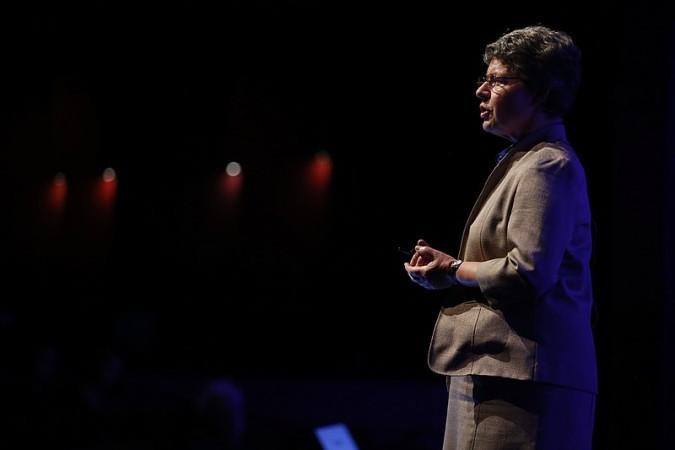
Jocelyn Bell Burnell, an astrophysicist born in Belfast, has recently been awarded the prestigious Breakthrough Prize in Fundamental Physics for a discovery that she did around 50 years ago. The 75-year old scientist has also received the prize money, $3 million, which she has donated for the good of science.
Young Bell Burnell was the first scientist to detect a pulsar, the neutron stars that give off electromagnetic radiation from their poles. She achieved this feat in 1967 at the Cambridge University. However, she was not recognized for the work that she has done. Rather, her male supervisor ended up getting the 1974 Nobel Prize in Physics for that very research. Jocelyn Bell Burnell was overlooked. Bell Burnell's story proves how women faced gender inequality in the field of science.
Jocelyn Bell Burnell was born in Northern Ireland in 1943. Since she was a little girl, she had to start fighting for her rights. After the age of 12, she had to fight to take science classes.
"The assumption was that the boys would do science and the girls would do cookery and needlework. It was such a firm assumption that it wasn't even discussed, so there was no choice in the matter," the scientist told The Washington Post.
Reportedly, during her junior year at the University of Glasgow, Jocelyn was the only woman in the class of physics honors. She had to face harassment by the male students every time she took a walk across the lecture hall. She stated that she learned not to get shy or blush because if she blushed the hecklers just got louder. When she came to Cambridge, she noticed that although the sexism was more subtle in there; it was very much present.

In 1968, Bell Burnell and her supervisor published a paper mentioning their findings related to the discovery of pulsar. As expected, the paper was highly praised all over the world. However, the media didn't know how to handle a woman scientist, who has been in the centre of a huge scientific breakthrough. Then in 1974, her supervisor Hewish received the Nobel Prize in physics "for his decisive role in the discovery of pulsars."
It took her decades to get the recognition that she deserved. Now, the scientist has decided to donate all the prize money to the Institute of Physics (IOP). This money will be used to fund scholarships for the underrepresented groups in the science fields.
"This prize is an excellent and hugely appropriate acknowledgement of Jocelyn's work. Her discovery of pulsars still stands as one of the most significant discoveries in physics and inspires scientists the world over," Professor Dame Julia Higgins, the IOP president, told the Independent.
The press release stated that the Breakthrough Prize recognized "Bell Burnell's 1967 Detection of Radio Signals from Rapidly Spinning, Super-Dense Neutron Stars and a Lifetime of Inspiring Scientific Leadership."
The Breakthrough Prize honors the great minds of science. Many science stalwarts, such as Stephen Hawking, had received this award. The CERN researchers, as well as the LIGO Collaboration, had received this award for discovering the Higgs boson and detecting the gravitational waves, respectively.
"Increasing the diversity in physics could lead to all sorts of good things," opined Jocelyn.
However, this is not her first award or achievement. Oxford University's visiting astronomy professor Bell Burnell was the first female president of the Institute of Physics and the Royal Society of Edinburgh. Also, in 2007, she became Order of the British Empire's Dame Commander.

















